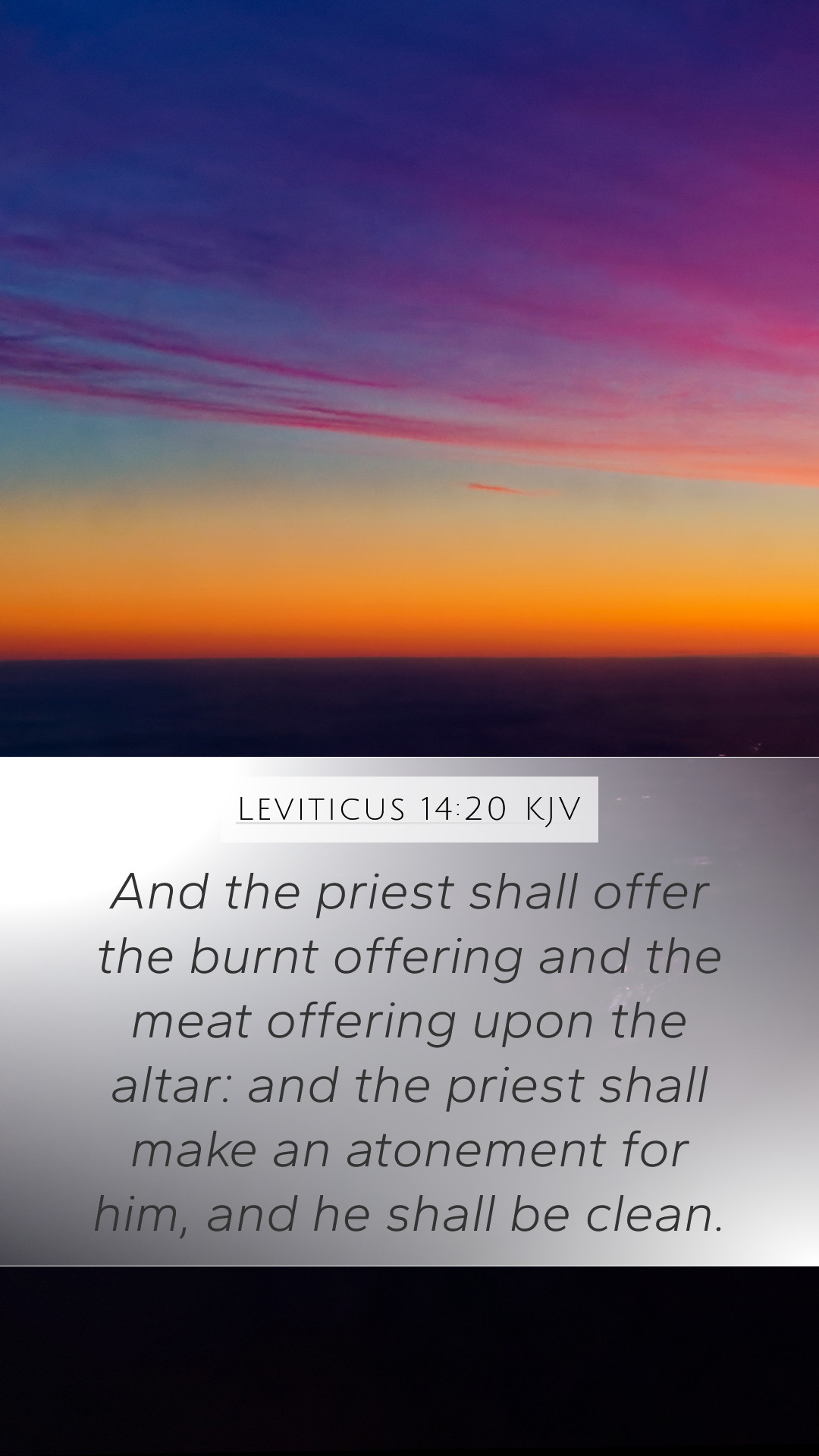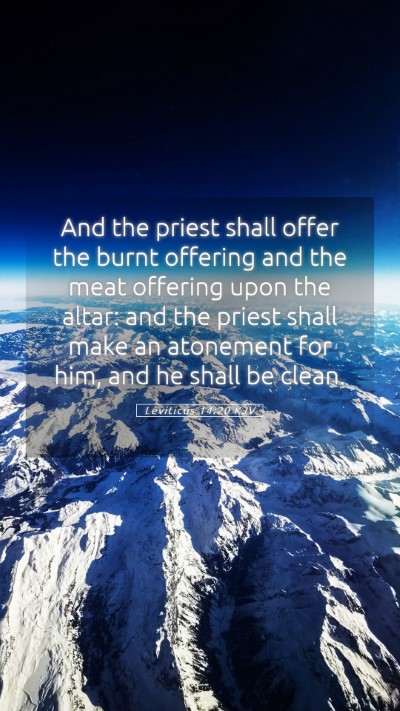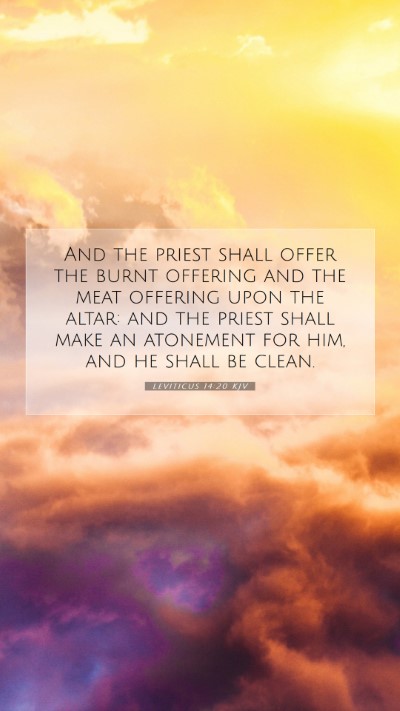Bible Verse Explanation: Leviticus 14:20
Leviticus 14:20 states: "And the priest shall offer the burnt offering and the meat offering upon the altar: and the priest shall make an atonement for him, and he shall be clean." This verse falls within the context of the laws regarding the purification of individuals who have been negatively affected by leprosy or similar conditions. Understanding this verse requires a look into its ceremonial significance as well as its broader implications within the framework of Old Testament law.
Meaning of Leviticus 14:20
This verse details the responsibilities of the priest in the ceremony of purification for someone who was previously unclean. The offerings mentioned here serve a dual purpose: they are acts of worship and expressions of atonement. The role of the priest underscores the need for an intermediary between God and man, a theme that resonates throughout the Scripture.
Bible Verse Interpretations
According to Matthew Henry, this verse emphasizes the importance of the burnt offering and the meat offering, which symbolize devotion and gratitude to God. The act demonstrates the principle that atonement and physical restoration are deeply connected in God’s order. The priest’s role is crucial, indicating that individuals could not approach God directly without mediation, showcasing the necessity of sacrificial offerings in biblical concerns for cleansing and reconciliation.
Albert Barnes notes that the offerings must be made before the priest. The text illustrates that the individual, now cleansed, must acknowledge his healing and restoration through offerings, which serve as public testimony and praise to God’s mercies. This reflects a communal aspect where the community must also recognize the individual's return to cleanliness and social acceptance.
Adam Clarke expands on the significance of these offerings, suggesting they not only symbolize atonement but also represent a covenant relationship between God and His people. The act of offering is seen as a necessary step to fully restore one’s standing within the community of Israel, reinforcing the notion that God’s laws were meant for both personal holiness and societal structure.
Scripture Analysis: A Deeper Dive
In the context of biblical exegesis, Leviticus 14:20 serves as a profound example of how Old Testament laws detail the procedures for maintaining spiritual purity. In a broader biblical narrative, this verse reflects God’s desire for His people to be holy, as He is holy (Leviticus 11:44). The relationship between sin, atonement, and holiness is underscored repeatedly throughout Scripture, making this verse vitally relevant for understanding themes of redemption and purification.
Key Themes in Leviticus 14:20
- Restoration: The careful procedures communicate that God is deeply concerned about both physical and spiritual restoration.
- Atonement: Atonement is a pivotal theme, illustrating the need for sacrifices to reconcile sinners with a holy God.
- Community: The involvement of the priest signifies that individual restoration has communal implications, highlighting the social dimension of purity laws.
- Divine Authority: This passage emphasizes that these ceremonial acts are prescribed by divine command, underscoring God’s sovereignty.
Application of Leviticus 14:20 to Daily Life
For modern readers, the essence of Leviticus 14:20 can foster reflections on themes of forgiveness, restoration, and the importance of community within spiritual practices. Understanding that cleansing requires acknowledgment of wrongdoing and acts of atonement can be beneficial for personal growth. The process of coming before God with sincerity and seeking reconciliation through prayer and acts of service can serve as a modern parallel to the offerings mentioned in this passage.
Bible Study Insights
This verse is not only a command but an invitation to engage in a deeper relationship with God through understanding His requirements for holiness. Individuals or Bible study groups can benefit from discussing the implications of these purification laws in both the Old Testament and the New Testament, examining how these principles of atonement have been fulfilled in the person of Jesus Christ, who serves as the ultimate priest and sacrifice.
Related Bible Cross References
- Leviticus 11:44 - "For I am the Lord your God: ye shall therefore sanctify yourselves, and ye shall be holy; for I am holy."
- Exodus 29:10-14 - Discusses the consecration of the priests and their sacrificial duties.
- Hebrews 9:22 - "And almost all things are by the law purged with blood; and without shedding of blood is no remission."
In summary, Leviticus 14:20 emphasizes the importance of purification through sacrificial offerings, establishing a framework for understanding sin, atonement, and reconciliation with God. These biblical pathways lead us towards a modern understanding of how to interpret Bible verses in light of God's overarching themes of mercy, grace, and community.


